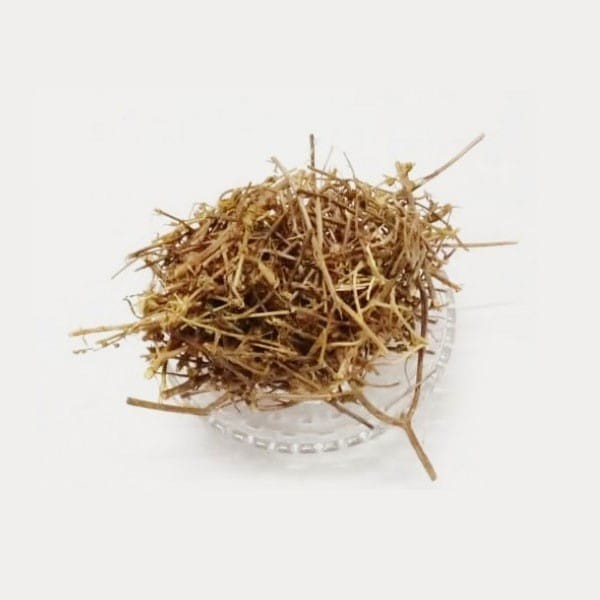Ban Tulsi/बन तुलसी
Ban Tulsi/Ban Basil Root (बन तुलसी) : Ban Tulsi Potted Plant (Ocimum Gratissum) Ban Tulsi Potted Plant (Ocimum Gratissum) – it is less commonly grown perennial, aromatic and sacred species of holy basil in India. The Queen of herbs is one of the worshiped aromatic herbs, its one or other species are found all over the world. Ban Tulsi
Ban Basil Root is a sacred plant from India use in traditional Ayurvedic medicine. There are three Basil varietals, each with a distinct flavor: the Green Leaf (Rama Basil), Purple Leaf (Krishna Basil), which bears dark green-to-purple leaves, and this third varietal, considered the most flavorful and also hardest to grow – Wild Forest (Ban Basil Root).
It is less commonly grown perennial, aromatic and sacred species of holy basil in India. The Queen of herbs is one of the worshiped aromatic herbs, its one or other species are found all over the world. Holy basil is categorized under Ocimum genus in plants family Lamiaceae which is native to India and has around 60 species identified with several health benefits associate with them. It is good source of vitamin A, Vitamin C, Calcium, Zinc, Iron, Chlorophyll, it posses anti bacterial, insecticidal properties and leaves have capabilities to purify contaminated water.
Ban Tulsi leaves are part in the worship of Vishnu and his avatars, including Krishna and Rama, and other male Vaishnava deities, such as Hanuman and some Brahmans. Tulsi is a sacred plant for Hindus and is worshipped as the avatar of Lakshmi. Traditionally, Tulsi is planted in the centre of the central courtyard of Hindu houses or may be grown next to Hanuman temples.
The ritual lighting of lamps each evening during Kartik includes the worship of the Ban Tulsi plant, which is held to be auspicious for the home. Vaishnavas traditionally use Hindu prayer beads made from Tulsi stems or roots, which are an important symbol of initiation. They have such a strong association with Vaishnavas, that followers of Vishnu are known as “those who bear the Tulsi round the neck”.
Tulsi Vivah is ceremonial festival perform anytime between Prabodhini Ekadashi (the eleventh or twelfth lunar day of the bright fortnight of the Hindu month of Kartik) and Kartik Purnima (the full moon of the month). The day varies regionally.
Ban Tulsi Benefits:
The leaves and flowering stems are strongly antiseptic, antispasmodic, carminative, cholagogue, diaphoretic, emmenagogue, expectorant, stimulant, stomachic and mildly tonic. The plant is taken internally in the treatment of colds, influenza, mild feverish illnesses, indigestion, stomach upsets and painful menstruation.
It is a long established fact that a reader will be distracted by the readable content of a page when looking at its layout. The point of using Lorem Ipsum is that it has a more-or-less normal distribution of letters, as opposed to using 'Content here, content here', making it look like readable English. Many desktop publishing packages and web page editors now use Lorem Ipsum as their default model text, and a search for 'lorem ipsum' will uncover many web sites still in their infancy. Various versions have evolved over the years, sometimes by accident, sometimes on purpose.
There are many variations of passages of Lorem Ipsum available, but the majority have suffered alteration in some form, by injected humour, or randomised words which don't look even slightly believable.
Review
There are no review yet
Add A Review
Your email address will not be published.






